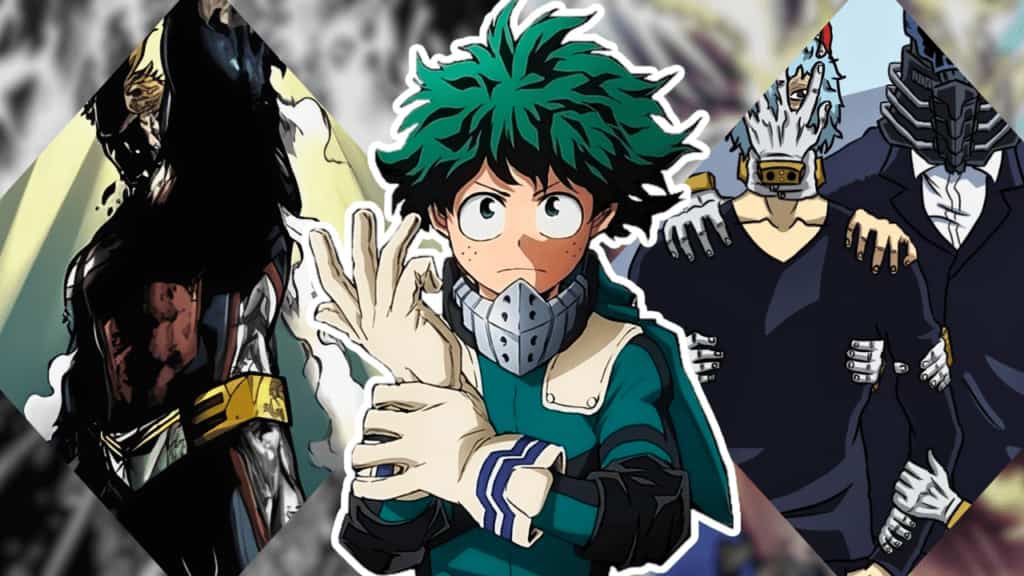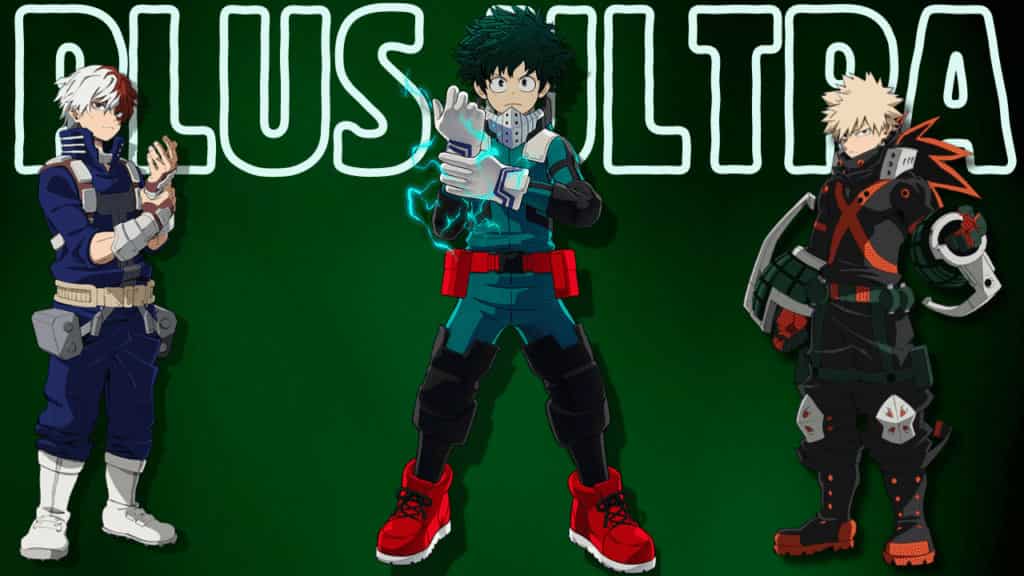
In My Hero Academia, the concept of heroism is central to the story. It’s not just about flashy powers and defeating villains; it’s about the moral and ethical choices that define what it truly means to be a hero.
The series presents us with a diverse range of characters, each embodying different aspects of heroism, from the symbol of peace like All Might to the aspiring young heroes of UA High School like Deku and Bakugo.
For characters like All Might and Deku, heroism is about being a symbol of hope and peace. They carry the weight of society’s expectations on their shoulders, using their incredible strength not just to defeat villains, but also to inspire other people.
All Might’s famous line “I am here”, becomes a beacon of hope for those in need, signifying that no matter how dark things get, a hero will always rise to the occasion and help everyone.
The Different Faces of Heroism
Izuku Midoriya, known as Deku, the central protagonist of the series embodies a different kind of heroism. Starting out quirkless in the story, he’s forced to rely on his intelligence, resourcefulness, and unwavering determination to become a hero.
His journey is a testament to the idea that heroism isn’t just about being born special, but it’s all about choosing to stand up and help others, regardless of personal limitations.
Midoriya’s admiration for All Might pushes him to constantly put others before himself, risking his own well-being to protect friends, civilians, and even enemies in certain situations.
In contrast, characters like Endeavor and Bakugo represent a more flawed vision of heroism, one driven by power and ambition. Endeavor, for much of the series, sees heroism as a way to surpass All Might, using strength and dominance to assert himself as the No. 1 hero.
Bakugo’s arc is similar; he initially equates strength and victory with heroism, but as the series progresses, he learns that being a hero means caring for others and protecting those who can’t protect themselves.
Heroism Beyond Quirks

The philosophy of heroism in My Hero Academia also touches on the moral dilemmas that most of tye heroes face. Stain, the Hero Killer, is like a dark mirror for hero society. He criticizes how heroes have become more focused on fame and money instead of truly helping people.
Stain believes that many heroes are fake and only care about their image, not about being real heroes who protect others out of pure selflessness. He believes that only those who are selfless and pure, like All Might, deserves to be called a Hero.
The series constantly emphasizes that heroism comes at a cost for everyone, often requiring great personal sacrifice. All Might gives up his health, Midoriya pushes his body beyond its limits, and even secondary characters like Mirio Togata sacrifice their powers for the greater good.
These sacrifices underline the idea that being a true hero means putting the needs of others above your own, even when it means losing something valuable.
Conclusion
At its heart, My Hero Academia portrays heroism as a complex and multifaceted ideal. It’s not about being the strongest or most famous; it’s about courage, compassion, and the willingness to fight for what’s right.
The series teaches that a true hero is someone who, despite their flaws and limitations, chooses to stand up for others, even in the face of overwhelming odds.
Whether it’s All Might’s larger-than-life presence, Midoriya’s selfless determination, or even Stain’s harsh critique of society, My Hero Academia challenges us to think deeply about what it really means to be a hero, both in fiction and in the real world.

